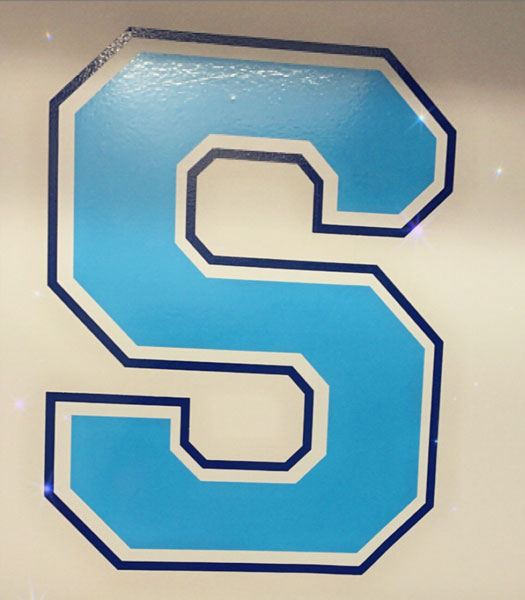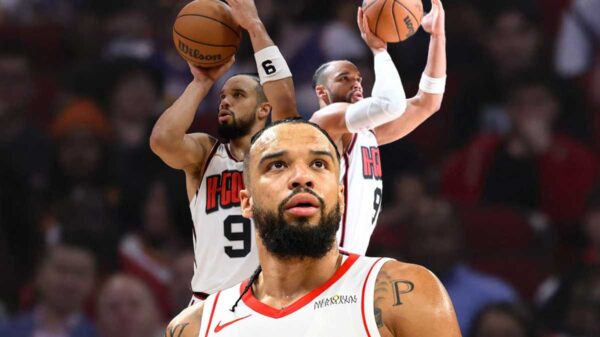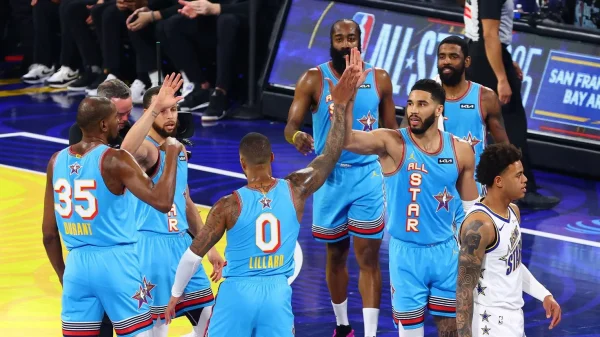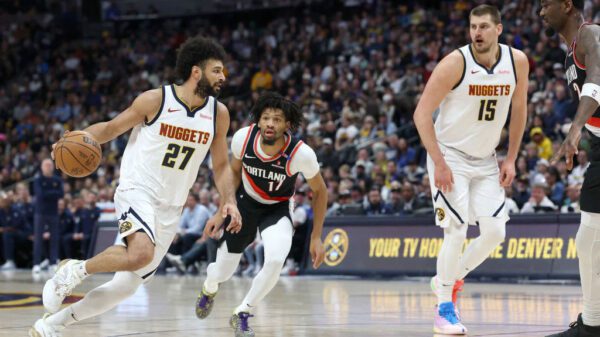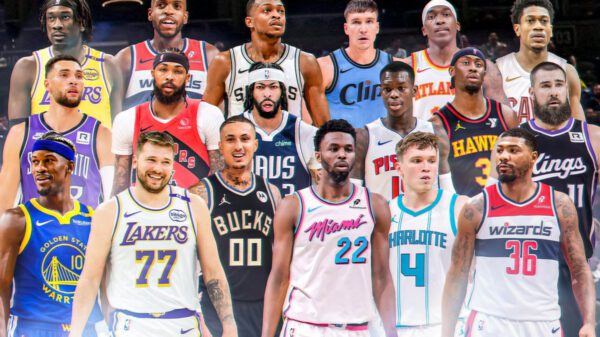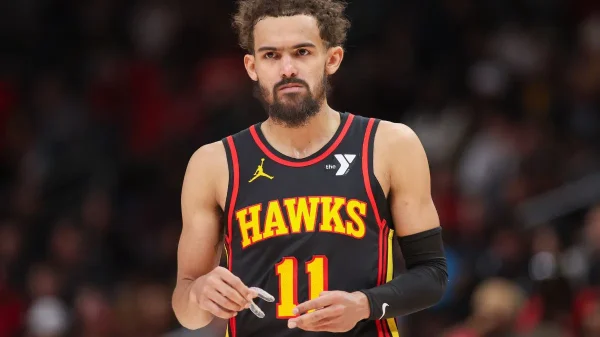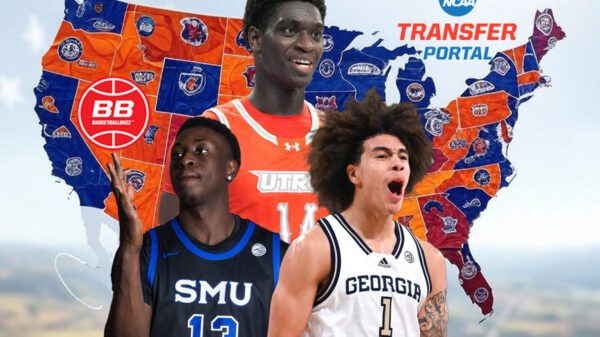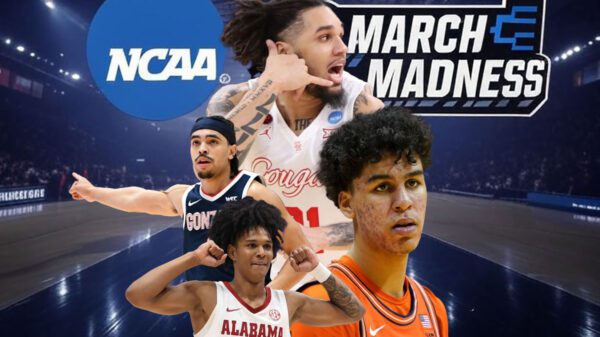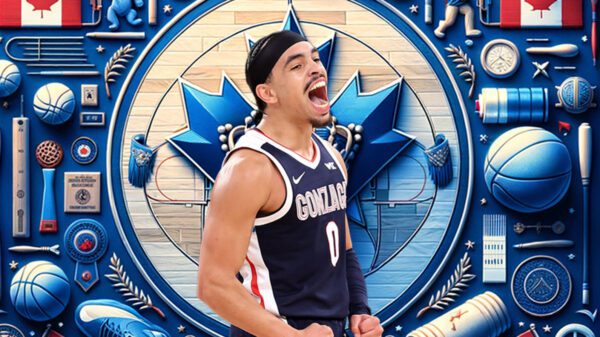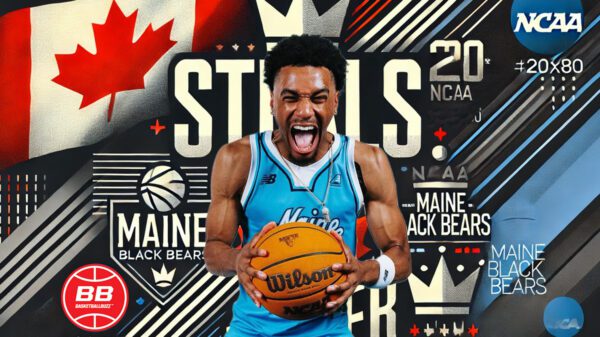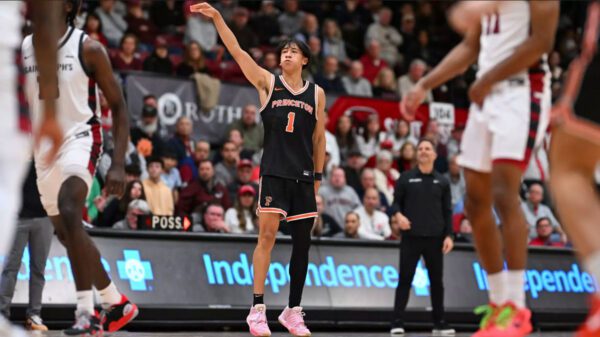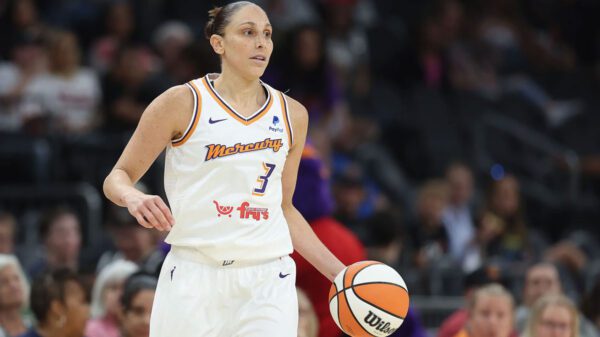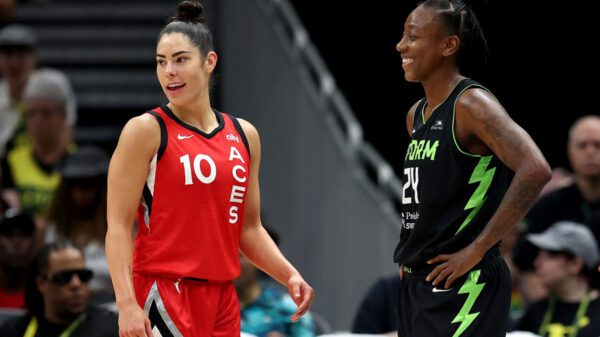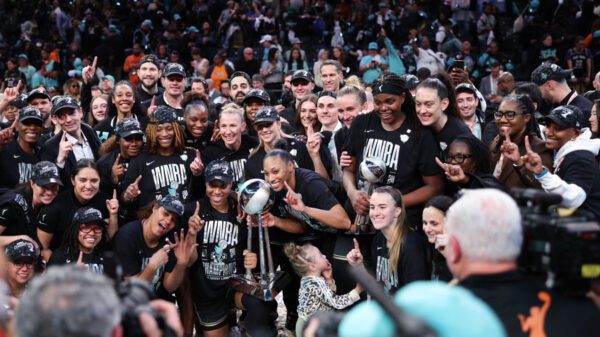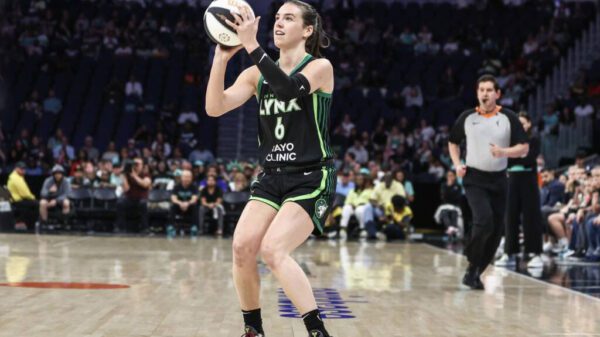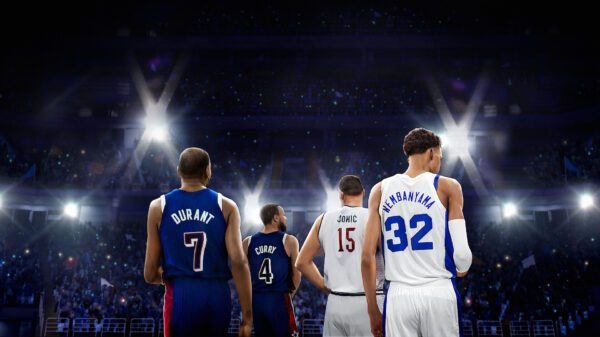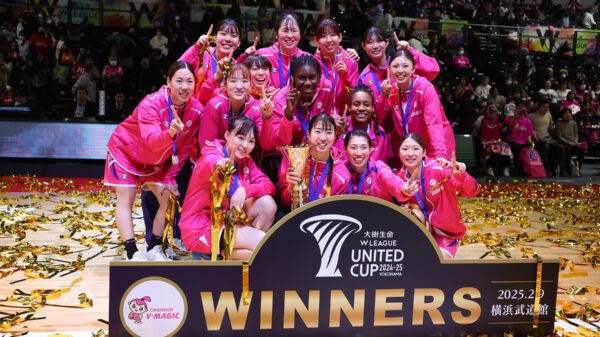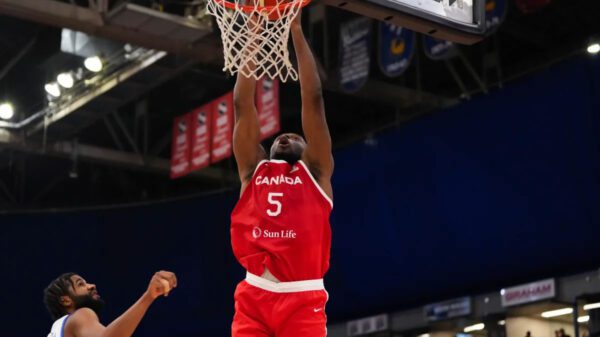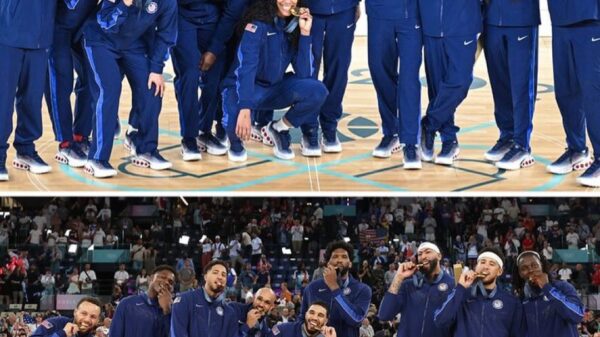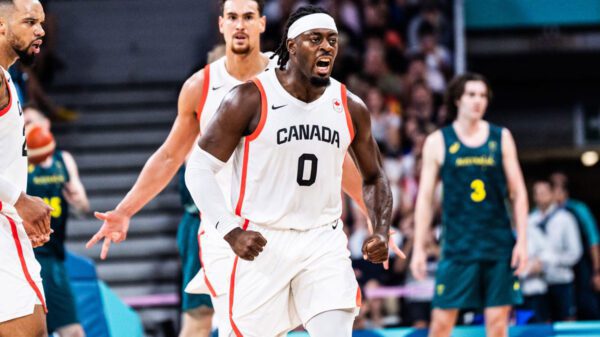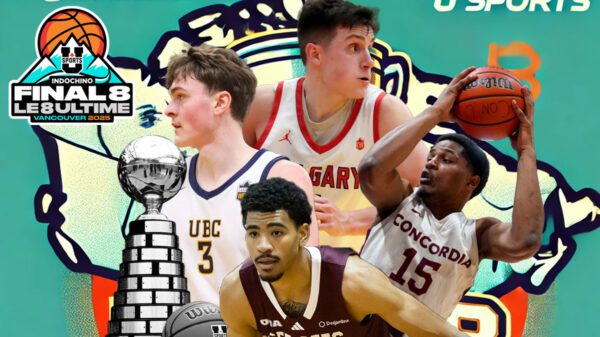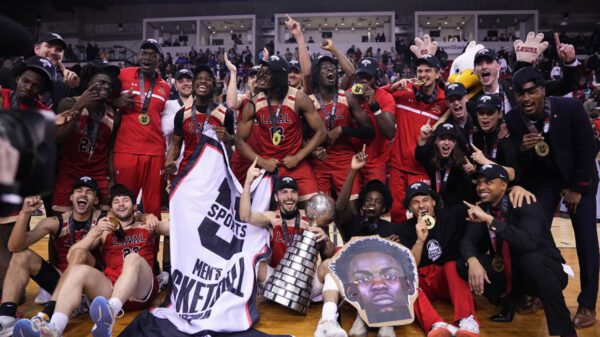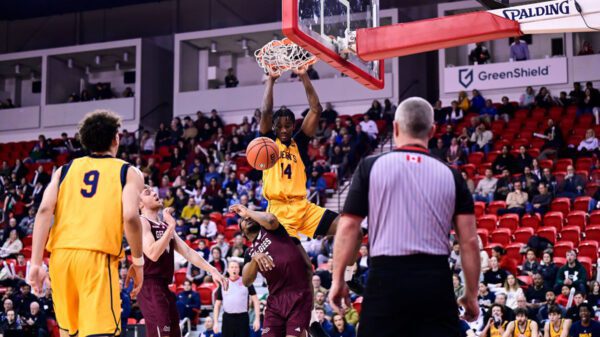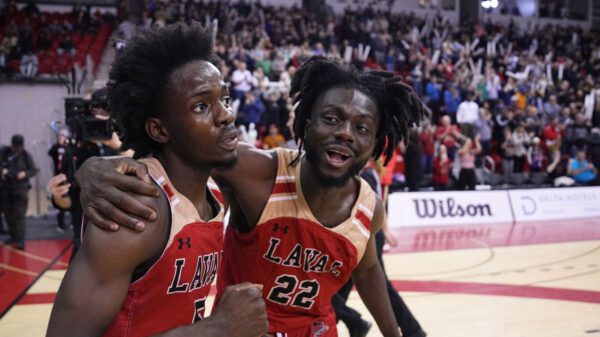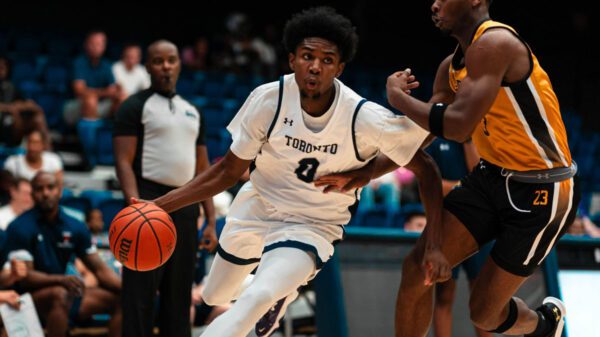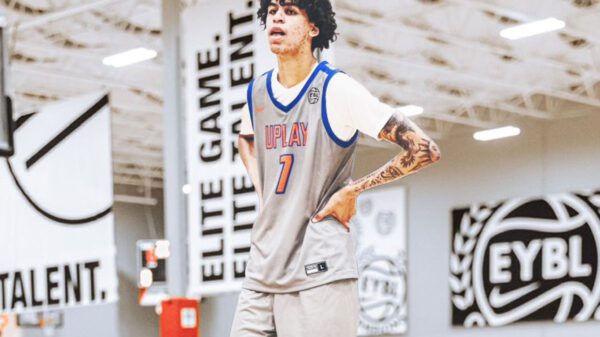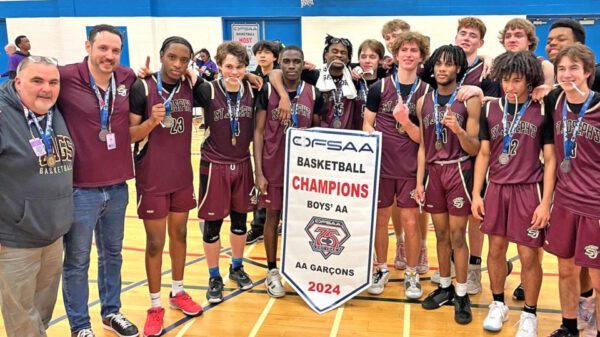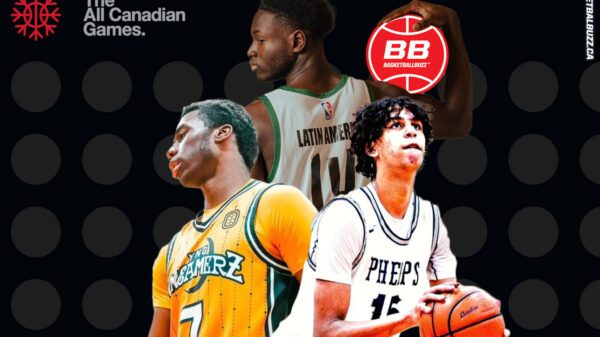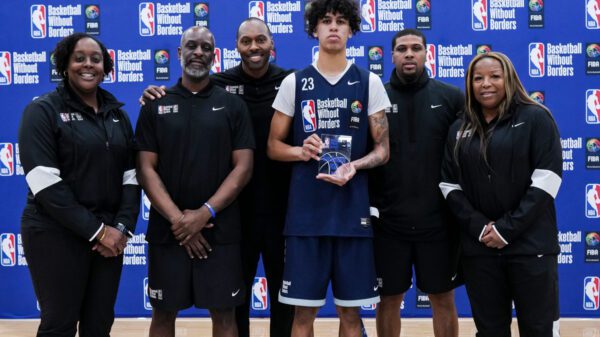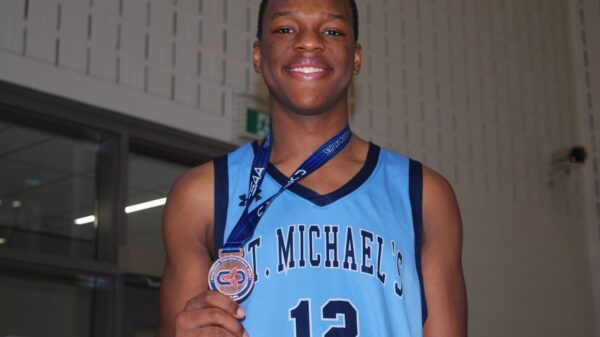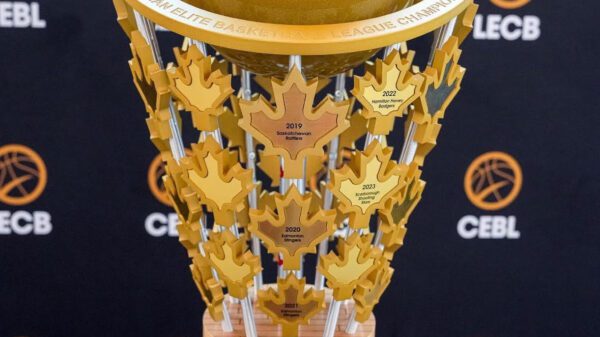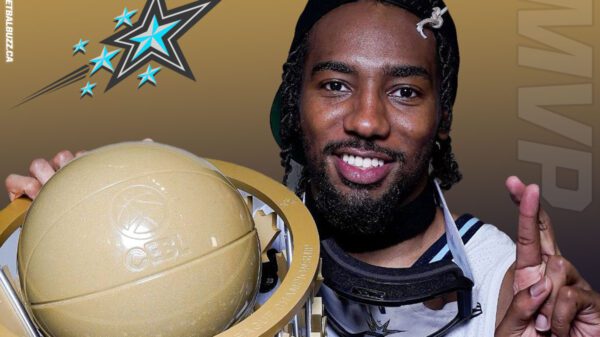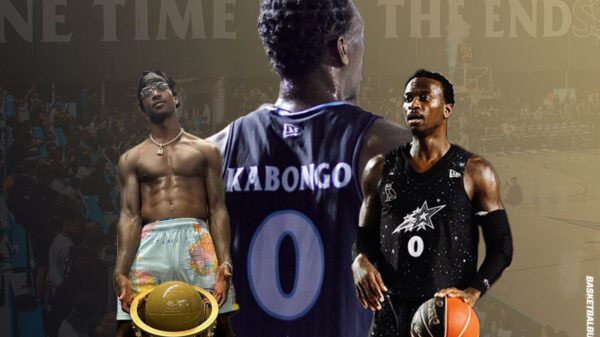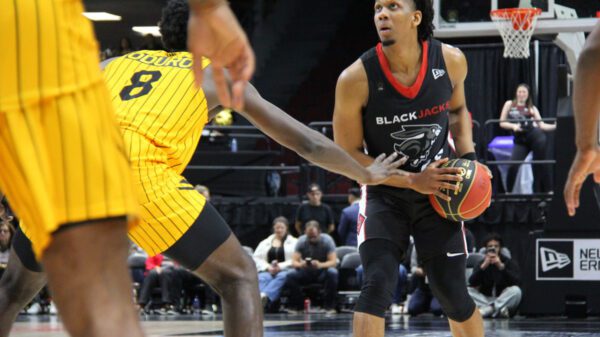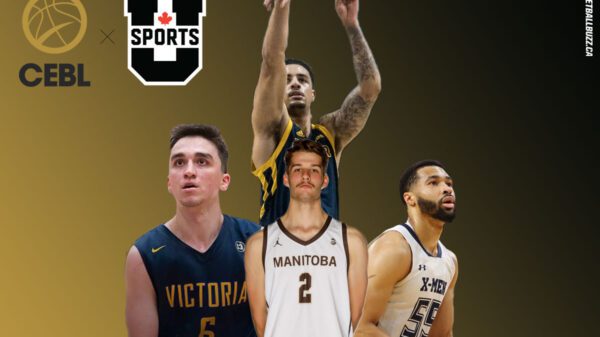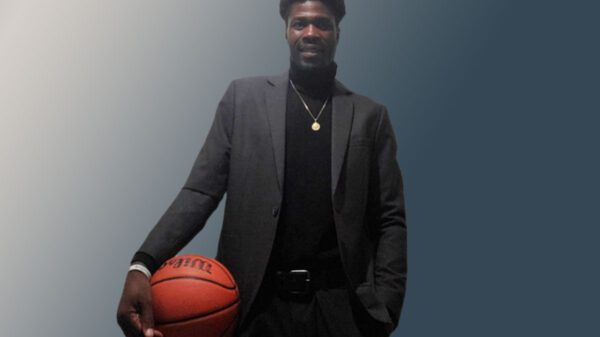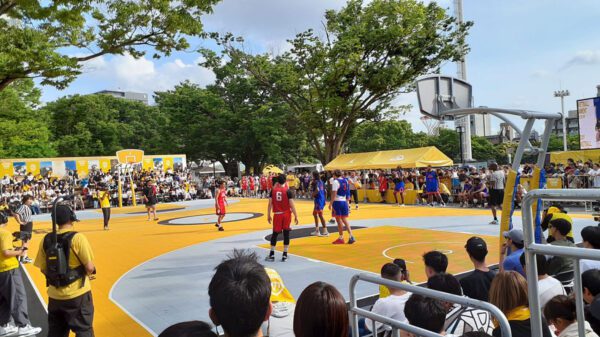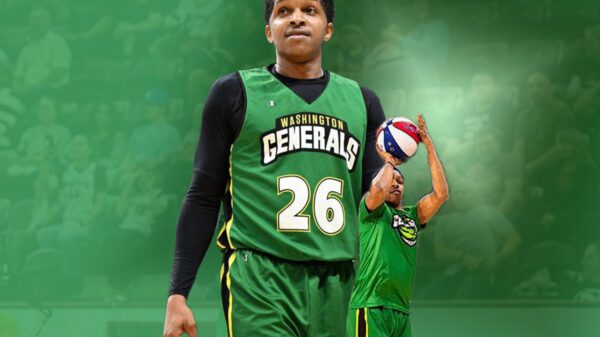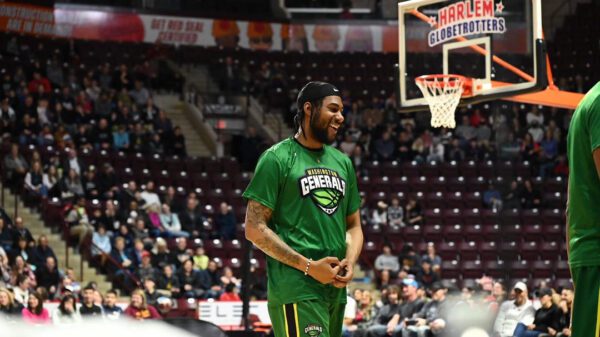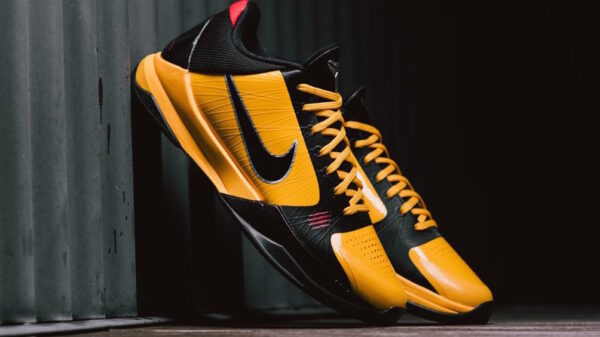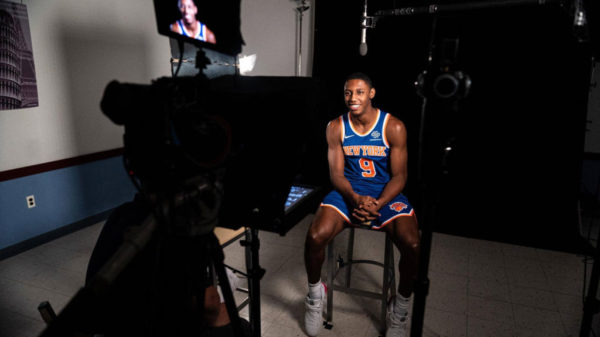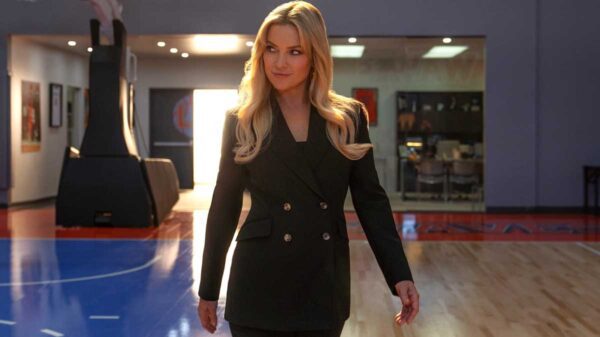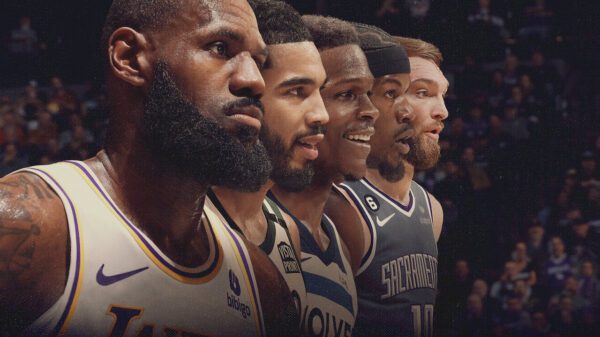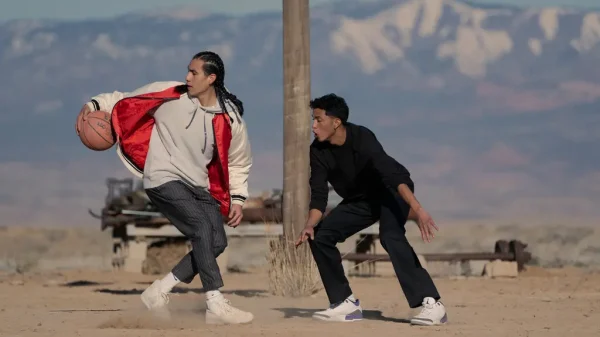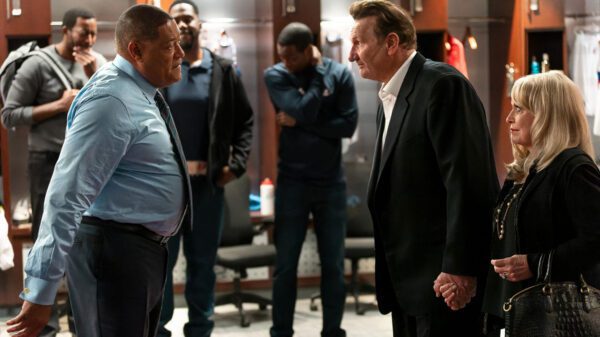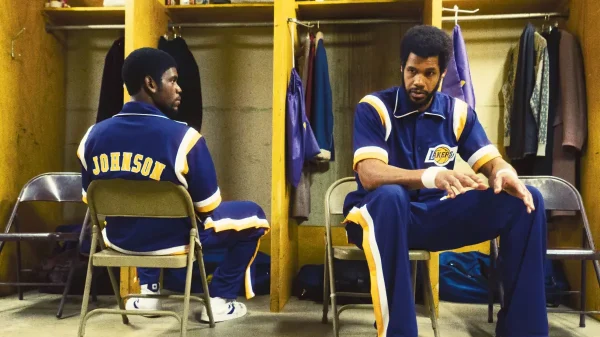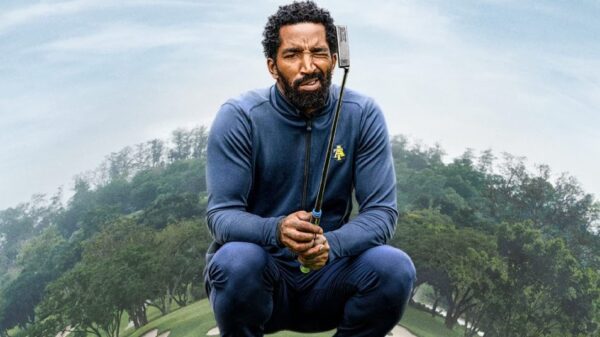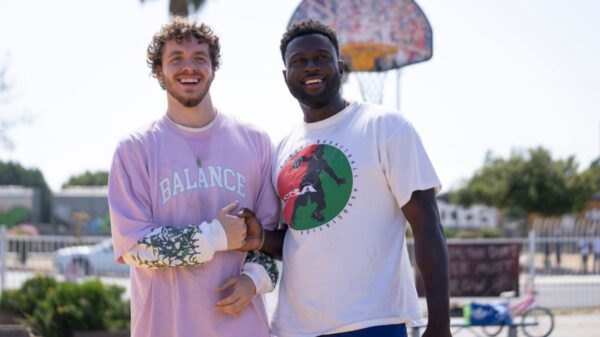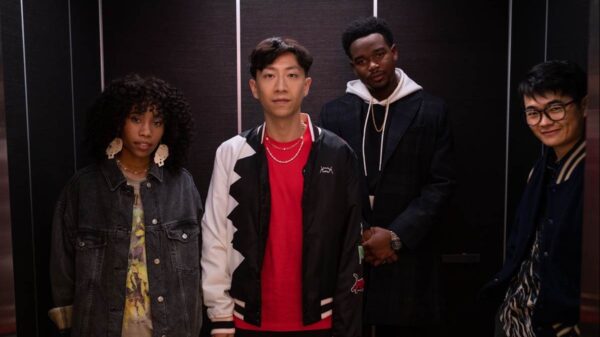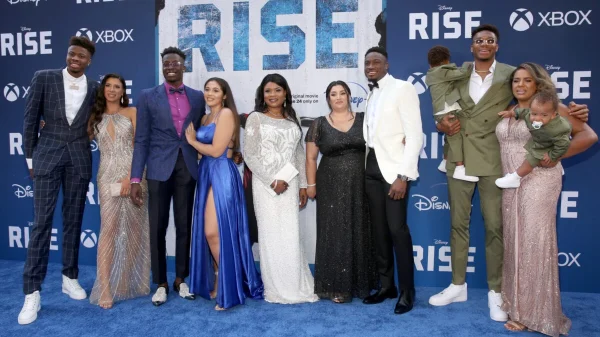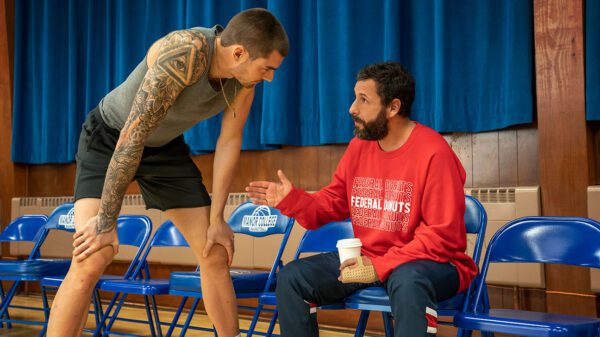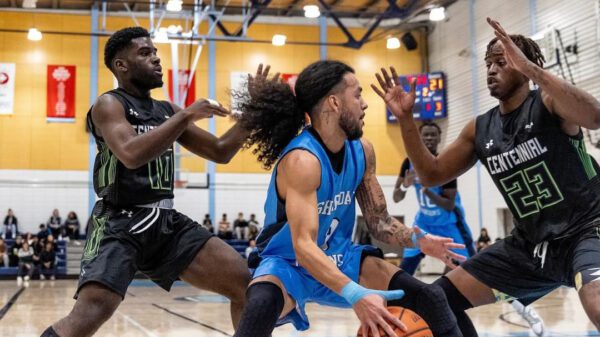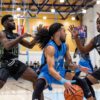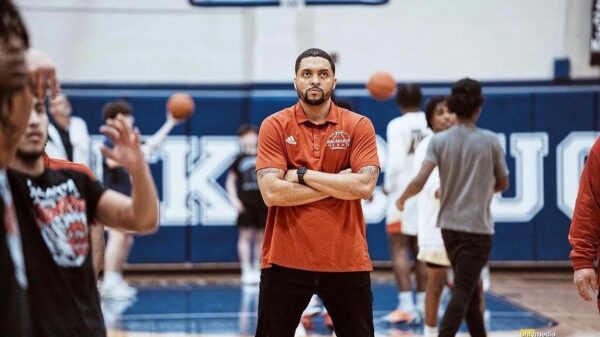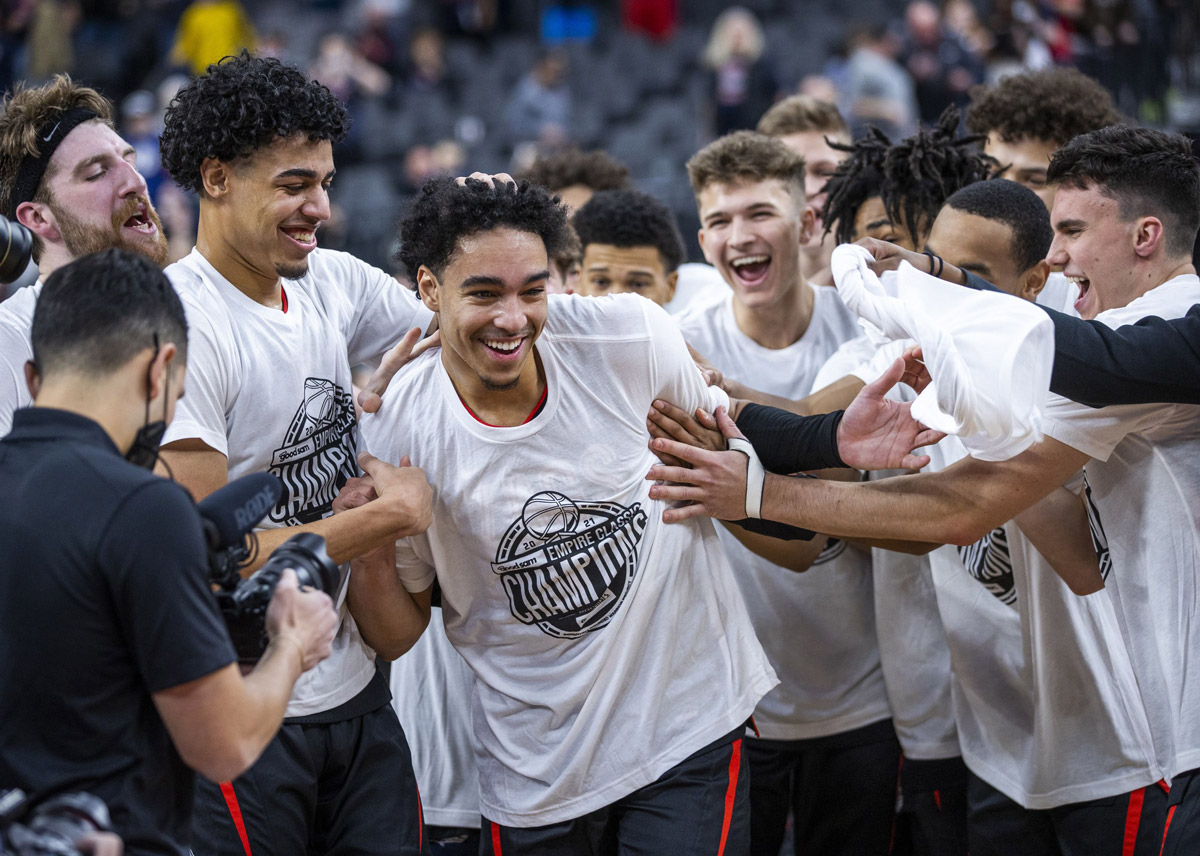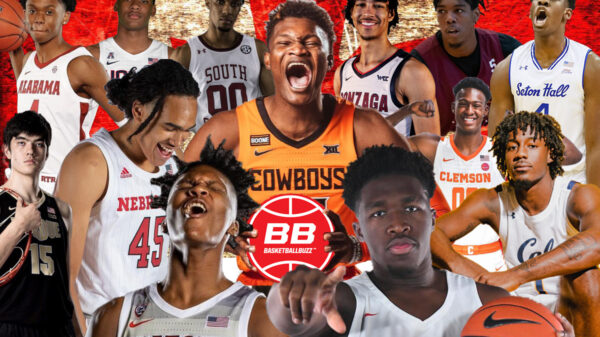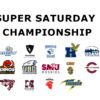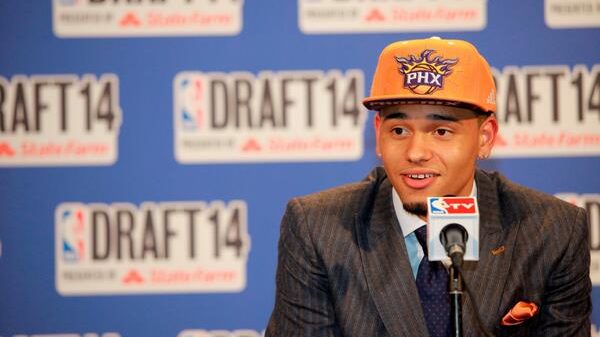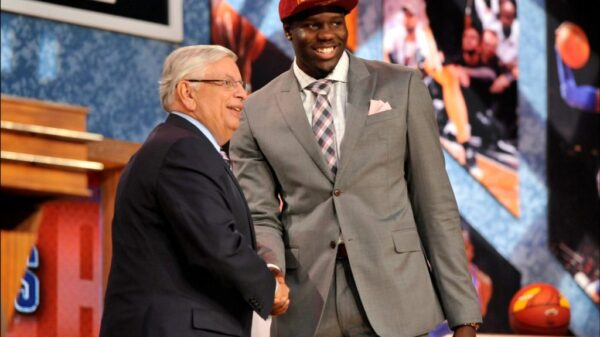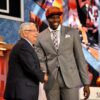“We’re trying to make a difference in the actual community, rather than make money, or get on TV and have everyone say “look at me”. In the end when my time is up, when my time is up on this earth, I’d like to think that those are the differences I’ve made.”Jim Flack
Coaching is one of the most important parts of the game of basketball. A good coach is the backbone of the team, providing motivation and guidance. Not only do they help shape the game, but they can also help shape your life.
Jim Flack, the coach of Sheridan College men’s basketball team displays greatness on and off the court, with his years of experience, accomplishments and an infectious personality that is sure to leave a lasting impression.
At the helm since 1993, Flack is easily one of the best Canadian basketball coaches of all-time. A legendary coaching tenure that spans over 30 years and over 700 wins.
Under Flack, the Bruins have claimed four Canadian Collegiate Athletic Association (CCAA) silver medals (2019, 2017, 2006 and 2001), 11 Ontario Colleges Athletic Association (OCAA) and six provincial silver medals, posting a .734 winning percentage (749-271) during that span.
Being a Sheridan alumni myself, I was able to catch up with Jim at the Sheridan Campus and discuss coaching, basketball and his accomplishments.
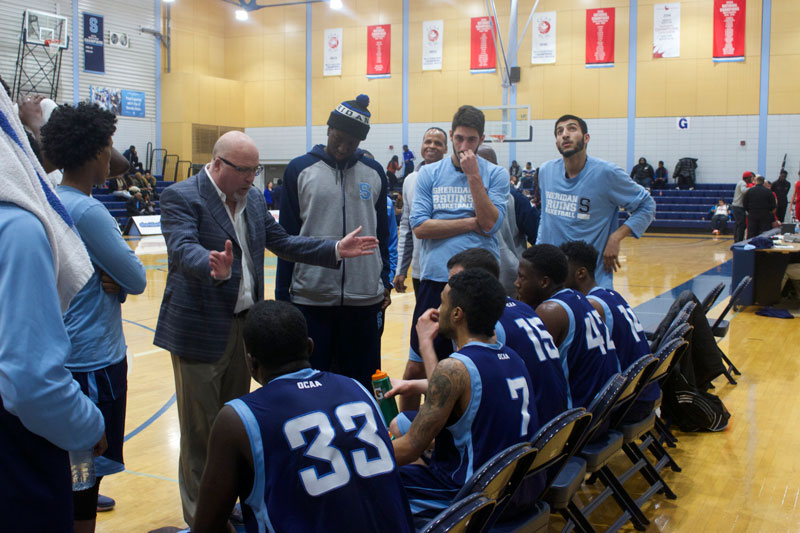
Tell us a little about yourself?
I’m a born and raised Peel guy, I grew up in a little village in the middle of Mississauga called Streetsville. I went to Streetsville Secondary school, so I’m a Streetsville Tiger.
I played basketball, football, golf and tennis there. I then went on and had a one-year career at York University. I had a really good high school career, but then went on to play one year at York, but was on a championship team from 1984-85. I then got into teaching, because I knew that’s where I really belonged, and started coaching in high school (12th grade).
In my early 20’s I started coaching high school basketball. I went back to school and did my Master’s of Education in New York, came back and become a high school teacher.
I taught high school at North Park and coached there for 10–11 years, in the last five years at North Park, I got my first assistant coaching job at Sheridan, then head coach at Seneca, then back to Sheridan as the head coach.
In my mid-30’s, Sheridan asked if I might want to help fix the athletics’ department, it had been defunded almost completely, and the previous director was ready to retire at this time, I took over for him, and have been the athletics director for 23–24 years, and the coach for 30.
I’ve had a great career, and I’m a hopeful guy. My wife, I met at Streetsville Secondary School, my daughter went through the system in Streetsville, and so I’m a local guy through and through.
Tell us more about the Sheridan basketball team, how long have you been coaching here, and how has the journey been so far?
I have been coaching here for 30 years, except for the covid year, when I was off a couple of times with some illnesses. There has only ever been three head coaches here in 50 years, which is crazy!
First was Dick Ruschiensky who was also the athletics’ director, then Wayne Allison who was a legendary coach – he played in the states, played in Windsor then became the coach here, won two national championships, and four Ontario championships, then I became his assistant coach, and my younger brother played here.
We’ve had a history of almost 30 guys go on and play pro, and that’s great, but it’s a very academic-based program. We try our best to win championships, but you’ll see around here, our mantra is “study, compete, graduate, succeed” It doesn’t say, “study, win gold.”
We strive to do that, we’ve certainly done that – thirteen times in Ontario and a couple times nationally, but our main mission here is to squeeze as much excellence out of these student athletes while not abusing their time and trying to help them graduate, so that when basketball is done, they can have a good life outside of basketball.
I often tell people that I don’t care where these guys are when they are 22, I’m far more concerned where they are when they’re 32, which I really believe coaching – at least in the educational sector, that’s what it should be about.
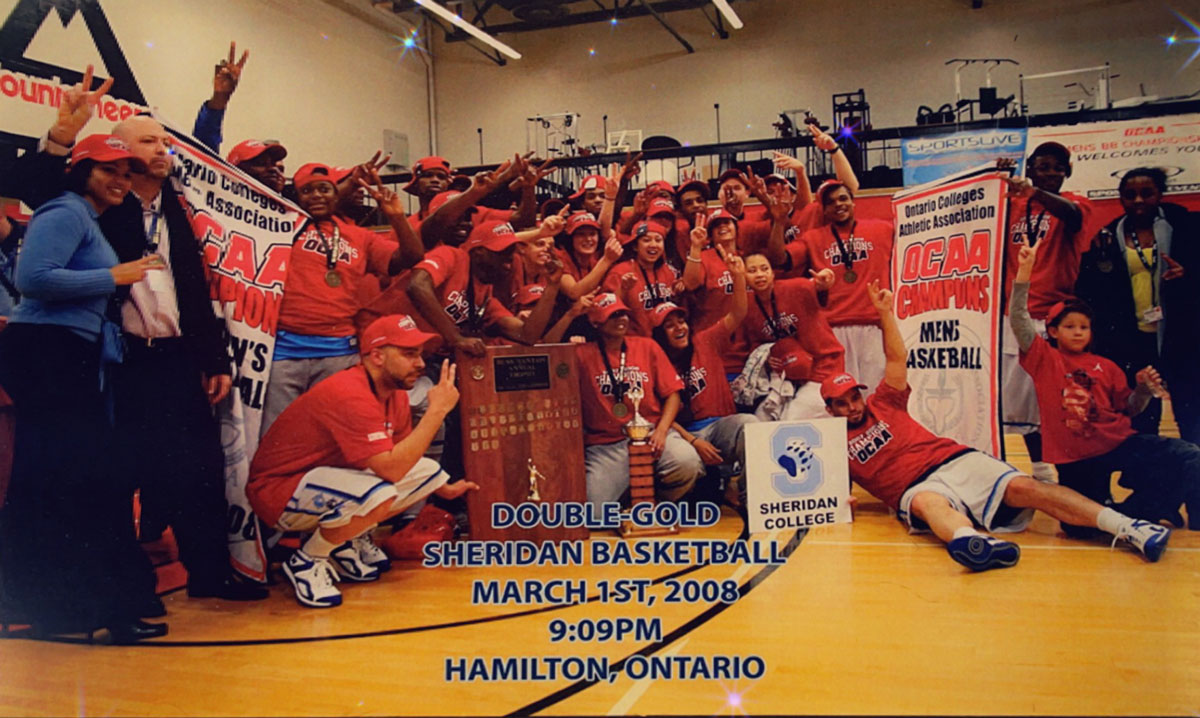
Where does your love for basketball come from?
My father was a Toronto Star all-star. He was named one of the top ten players in Toronto, in about 1950 at Parkdale Collegiate. He and my mother got married in their early 20s, and they had four boys, and at 6-feet, 175 pounds (what I played at), they were all much bigger than me. All of us played very highly competitively, at Guelph, at York and at Sheridan.
There was something about the game – I had a pretty good hockey career going, but there was something about this game that was just different, and I just fell in love with it when I started to play. I was a pretty fast guy, so that really paid dividends for me.
The hockey culture just never really spoke to me as much. I had a love for it as a kid, but once basketball got in my blood (from my dad) – that was it, then when you have success at something (they say, success breeds success), you start to fall in love with it, and it becomes a part of your identity (probably far too much).
That love came from my dad, and then you start to attract friends to it, start to have success with it. I was the first guy to ever be a three time all-star, I made the senior all-star team as a junior, I also coached in that game 6–7 years later. It bleeds through my system.
I would like to think I’m far more than that, I’m a great lover of jazz, of history, I love education, and becoming more educated, even at this age, just keep pushing myself, but the love of basketball has fed a lot of things.
I’ve had a lot of disappointment with it, but a great deal of success, and the friends I have are so incredibly important to me, and the one thing I say to people is, I only have one daughter, but by this point, I probably have about 200 sons, because that’s how I think about the guys that come through here.
How would you describe your coaching style?
To be fair – I think if you ask the coaches in our league what do you expect from Coach Flack, it would be – he’s going to play a lot of guys (there’s method to that madness). He’s going to pressure you, a lot of full-court pressure, and the emphasis is largely on defence.
I was very fortunate years ago to have Jay Triano, when he was the national team coach, ask me to come in and sort of be an apprentice coach, and he wanted my emphasis to be on defence, because he loved the way our team defended. Now do they always defend that way – no, but that’s where we spend a great deal of our time. There’s still a lot of offensive freedom.
When I played at York. I remember playing on the floor against Waterloo, and not being able to get our team into any offence because of the way Waterloo was defending, it was high pressure, it was frustrating the point guard (me), and that sort of planted something in my mind.
That philosophy is how we go, we’re going to pressure you, we’re going to try and turn the ball over and get some easy layups, get some pick 6’s and just make it very difficult for you, and sort of intimidate people as they get onto the floor with us, where they’re scared that they’re going to have to face this high pressure. Do we always get there?, no, but it’s paid great dividends.

Do you believe a player can be uncoachable?
100% I believe a player can be uncoachable. There are some people who would be better off playing an individual sport. I love this old saying “Victory has a thousand fathers, but defeat is an orphan”. Often times, you’ll have guys that want to hide in the group and cast blame on teammates when they lose and take credit when they win.
You’ll have people who belong on the golf course, or playing tennis, track, etc., where there’s really no one to blame but themselves, and we do get guys like that, who don’t want to listen, don’t want to do it the way the coach asked them to do it, don’t understand the concept of understanding themselves for the greater good, and I feel sorry for them, because they get locked into a team sport, where they would have been much better off to play an individual sport.
I sometimes wonder if they’re just afraid to do that because of what it might tell them about themselves, that they came up short and they have no one to blame but themselves. It doesn’t mean they’re bad people, they’re just not easy to coach, and I would argue that I was not easy to coach.
I see behaviours in some of my players that I don’t like, that I saw in myself. Another saying that I really love, and I’ve passed this on to a lot of people, is, “there’s something about that person, I don’t like about myself.” Often when you find that there’s something you don’t like about someone, if you really look inside yourself, you realize that they’re exhibiting something that you don’t like about yourself.
There are times when I see some of my players doing things that I used to do, and it upsets me because I know how destructive it was to me and the team, so yeah, there are some guys who are uncoachable, and there are times when I certainly felt like I was, and certain guys have come through this program, and we didn’t get the best out of them, because we couldn’t find the right button to push, and maybe in the end there was no right button to push in the first place.
We see it all the time, a team loses the championship and then the coach gets fired, what is your opinion on this?
Well if that was the case, I guess at this point, I would have been fired 21 times, because we’ve won nine as a coaching staff. I think that’s ridiculous, more at a college level than anything. At a pro level, it’s not as ridiculous. It’s an interesting cycle we’re forced to have as college cultures.
Our players cycle through every 2–3 years, and they’re gone, so you don’t have enough time to truly be sick of them, they don’t have enough time to be sick of you. We’ve seen some of our fifth year players become very difficult to coach because they’ve heard it all before, and you’re kind of sick of the same behaviours they’re exhibiting, and they’re sick of the same old speech.
In the pro league, I can certainly see that if you’re going to hang onto your players, at a certain point, they may just tune you out, because it’s like “here we go again with that speech”
When you look at some of the long-term coaches who have stayed in one place for a long time, Eric Spoelstra in Miami, is a prime example of how we try and run our program here. We don’t go out and chase high profile players. We don’t recruit high-profile players, other schools do, that’s good for them.
What we find is, they’re much more difficult to coach and when you go out, and you recruit them that hard, they have a sense of entitlement, and we don’t want anyone on our basketball team – or anyone here on any team at Sheridan to have that sort of entitled athletic stereotype.
I don’t watch a lot of NBA games, in fact, I don’t think I’ve watched a regular season NBA game in almost a decade. It just doesn’t speak to me the way college basketball does, the league has sort of lost me.
The hiring and firing of a Raptors’ coach doesn’t concern me as much, because they don’t have the backdrop of graduation, they just have the wins and losses to go on. And as a note, I don’t think the coach is the most important person on a professional team, it’s the general manager and the president. If they get them players, they’ll win.
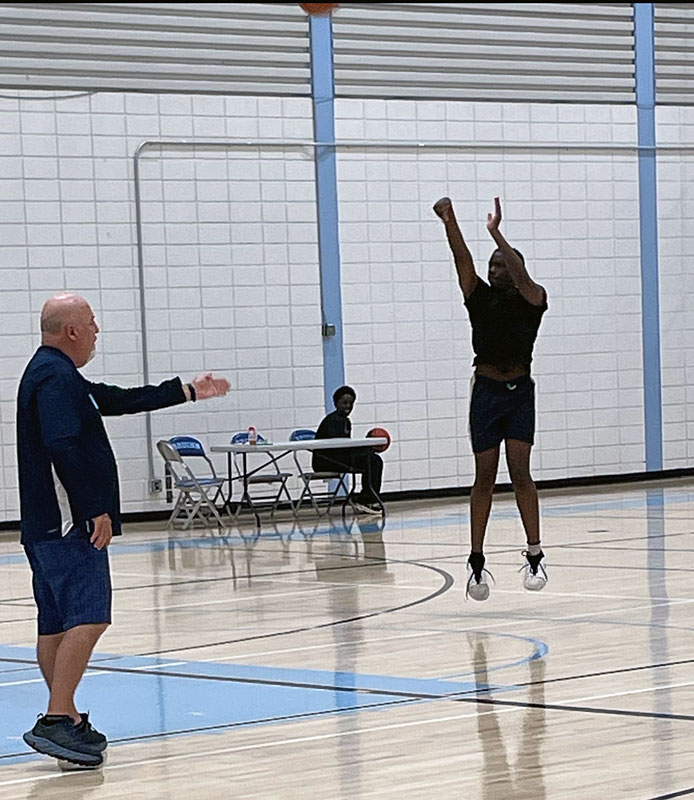
In your opinion, what makes an overall good player?
Oh boy, that’s an interesting question. There’s a pyramid that my former players and coaches still use. The pyramid foundation is defence, then on top of that you have two pieces that are rebounding and offence.
If you can do one of those three things really well, you’ll probably get a spot on the team. If you can do two of those three things really well, now you’re talking about getting a spot on the team, and getting some minutes, and maybe a lot of minutes. But if you want to be an excellent player, you got to be able to do all three at a high level.
You better be able to defend, you got to rebound, and when I say offence, it doesn’t necessarily mean shooting, it can be a point-guard who creates a lot, it can be a guy who scores 12 points a night off of offensive rebounding, it can be a guy who gets fouled a lot and shoots 85% percent from the free-throw line, but rebounding is huge, much bigger than people understand.
At this program specifically, if you don’t defend, you’re not going to get on the floor. Another reason why we do not recruit big, elite players, is because a lot of them have been coddled and trained to believe that being able to shoot the ball is all you need to do, but if you’re going to have a successful player and team, then you have to be able to do more than that.
When you look at that pyramid that I was talking about, the last skill that people don’t really call a skill is effort. Effort is a skill, it’s not just something that’s assumed. Without effort, you cannot be excellent – you just can’t.
I think about Nick Campbell, he was the player of the year in Ontario. In the four years I coached him, I can’t remember correcting him to be in the right place, maybe more than five times in four years, or saying you’re not trying hard enough, or that was a bad decision.
He listened, the effort was there, and when you taught him something, you didn’t have to teach him twenty times. He worked hard in the weight room, he graduated and did all the right things, he is an example of someone you would point to.
Have you ever aspired to coach in the NBA?
I would say no, but my wife and my daughter would probably shoot me for not taking up that opportunity. It doesn’t interest me. I’ve been consistent for 35 years in saying no.
First of all, they wouldn’t want me because the way I do things, is not the way they do things, and secondly, any sort of attitude that someone is not buying into, is not going to end well. I have a quick temper – I know that, I’ve known that for a long time.
I think the NBA has been sort of turned upside down in that it’s a superstar driven league. We all know that they would prefer to have LA and Boston in the playoffs every year – LA and New York if the Knicks ever got their act together, but it’s upside down.
What we do here is so important. The young men that we get in here need to understand that even though your coach may have cuddled you, or your parents may have, it’s not going to be that way when you graduate. Once someone in your family crosses that stage and graduates, the odds that their children will graduate grow expeditiously.
We’re trying to make a difference in the actual community, rather than make money, or get on TV and have everyone say “look at me”. In the end when my time is up, when my time is up on this earth, I’d like to think that those are the differences I’ve made, rather than help a league get two billion more dollars from China, or a million more views on TNT, it just doesn’t appeal to me.
How do you keep players motivated?
Motivating players today is a very strange order. We’ve seen a massive shift in the last 6–7 years in the social media concept, people in my vintage complain a lot about social media and I get it. As an educator and someone who really cares about young people, I see the fun in social media, but I also see the destructive tendencies.
I read an article recently where someone was saying you’re going to see college level players who have never watched a full NBA or college game in their life, all they look at is highlights, what they want is highlights, they want clicks.
There’s a foundational concept there that is missing, I find it a little bit sad, the beauty of sport, is swallowing that pride and giving something up for the team, whether it’s taking that charge or letting someone else have the interview after the game.
We do a lot of things to motivate — our locker room is filled with sayings, we repeat the same things over and over. One thing that we do that we hope motivates them is we’re terribly honest with them, we don’t sugarcoat things, and we tell them the truth about where they’re going, what we’re doing, and this is why.
I spoke earlier about pressuring a lot, well if you’re going to pressure the ball a lot, what happens is that you have to play more players, by playing more players, your locker room is happier, because at least guys are getting on the floor. When they’re happier, they’re likely to come back for second, third, fourth year, and then what are they most likely to do – graduate.
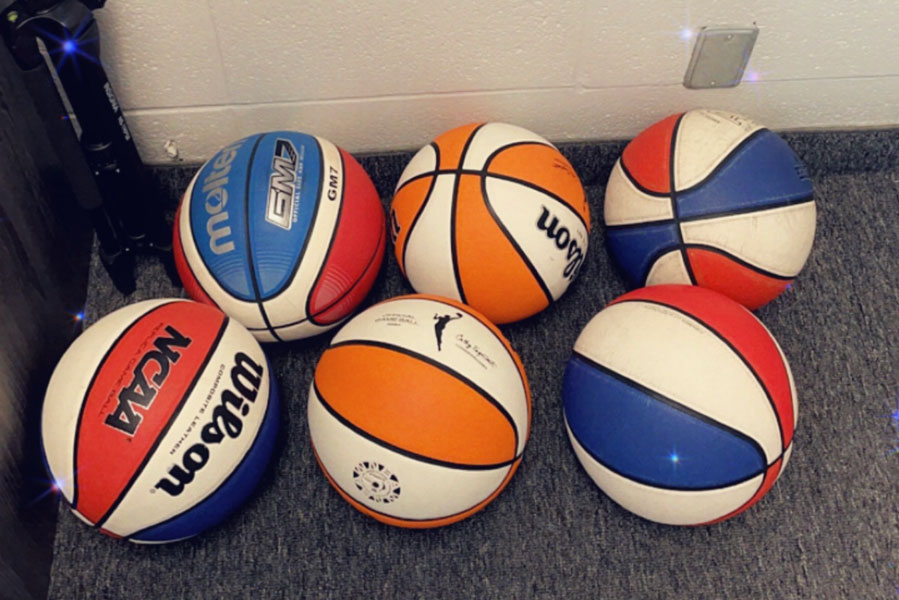
If your players had to describe you in three words, what do you think they would be?
I would hope those three words would be: honest, intense and funny. I know I can make people laugh. Sometimes, the coaches on the team have to sort of keep me in check because one of my great thrills in life is to make people laugh. Some of the humour is appropriate, some is inappropriate, but if I can get you to laugh, it’s really made my day.
Intense is just something I’ve inherited, it’s a family trait, it doesn’t make you necessarily healthy all the time, because you have to learn to let things go, but in the winter with basketball, I’m hyper-competitive.
As, I said before – honest. I think anyone who would sort of BS a young man to come to their school to help them win, is the height of hypocrisy, and borderlines evil to a degree because our brains are not fully formed until 25, 26, and you’re messing with someone who’s 18, 19, 20 years old, so you can win – that’s wrong.
If you had to pick between a super-talented player who lacked work ethic, and a player with not a lot of talent, but tremendous work ethic, who would you pick?
You know, I’d like to say I’d pick the second – work ethic is tough to teach, it really is, but in the end we’re in a competition here and somebody has to score the ball. That is a good question, any question that is difficult for someone to answer is a great question.
On an individual basis, I would have to know more about them, but at face value, I would probably take the guy that doesn’t have the work ethic but has the natural talent, and hope that we can instill that work ethic. With that being said, there had been a lot of super-talented guys that have been on our bench, that could not get off our bench.
There was one in the last six years (and I won’t say who it is), who may have been one of the most talented athletes who ever came through this door, probably in the top eight, probably could have played professional football, maybe even professional basketball, but his work ethic was just not there.
He’s doing some great things outside of basketball, but all the coaches tried to get to him, push the right buttons, it just failed in the end – we even spoke to his parents, everyone around him, with no luck. But I think watching that young man, I think he’s going to do okay in life, because once he gets out of the world of sports, he seems to be able to do enough to be successful.
The moral of the story is, a lot of guys who were way less talented than him, but with way more effort played more minutes, because it’s difficult to watch somebody not give their all.
You recently got inducted into the Brampton Sports Hall of Fame, how does that feel?
It was a big honour. When the dean of students called me, and said listen, I have a request of you, and you’re not allowed to say no. It’s kind of a funny story, she said “I never say this to you, we’ve been friends a long time, and I got to ask this of you, and you’re not allowed to say no”. I said “that’s impossible, you can’t ask me that” and she said “it’s a very professional thing, I need a favour, and you can’t say no.”
We’ve been friends for over two decades, so I finally relented and said “OK”. She said, we want to honour you for the Brampton Sports Hall of Fame, and see if they will induct you.
I cussed a little bit, that she had to bring this to me, because she knows, this is not false modesty, but I didn’t get into this for the awards and the recognition. I did not, I got into it because I have a deep love for education. My mother was a teacher, my father became a superintendent.
While I’m getting inducted into the Brampton Hall of Fame, I’m reflecting upon the kindergarten teacher in Brampton working with kids maybe in a social economically challenged area, who will never go into the Hall of Fame, or someone working with autistic kids somewhere, who will never go into the Hall of Fame, and those are the real hero’s of our society.
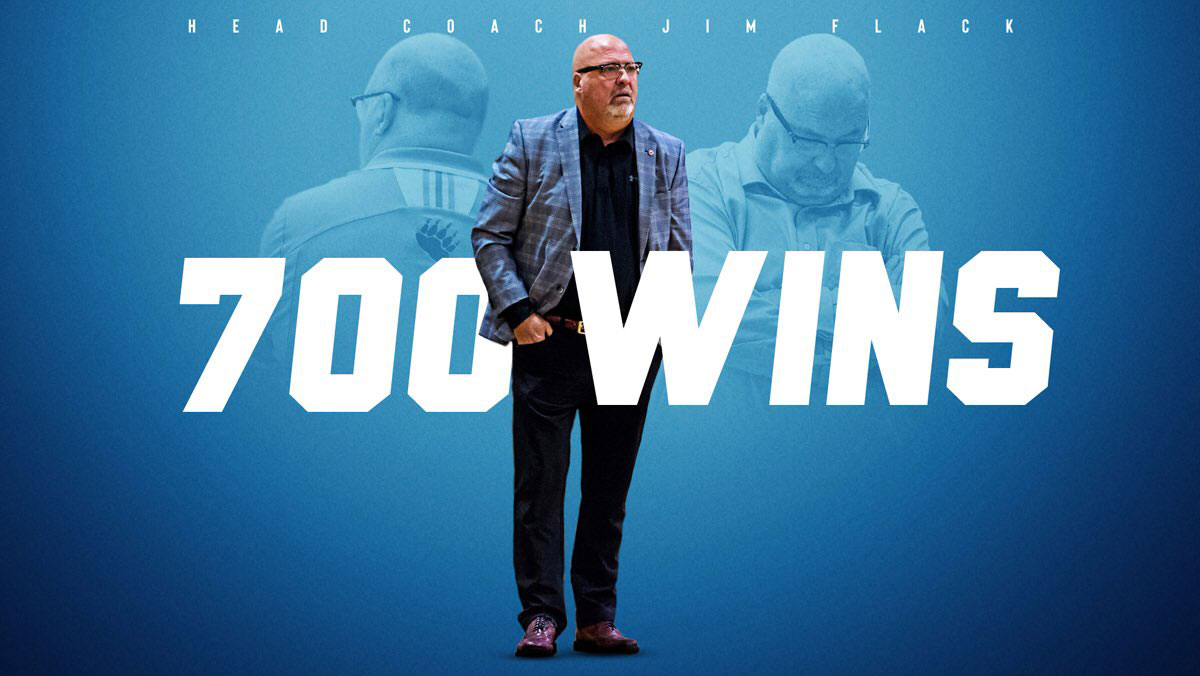
It was very humbling, a great honour, my family came and saw that happen. People said that when they were watching me on stage, I was very fidgety and sort of agitated.
It’s a strange thing as my daughter says all the time, for someone who really doesn’t like the spotlight, you sure picked a strange way to make a living. And that’s true, but I didn’t do it for the spotlight, I did it because I just love the sport, I love the challenge of it, and I love the effect that you can have with young people, and I love my guys – in the end I love my guys.
I’m so proud of my alumni, and so proud of the relationships I have, so that’s what all of this was built on. When it comes to coaching, I’m 59, and I’m not done yet. There’s no time really during the work week, that I enjoy more than when I can put everything down, and get in the gym with the team, I always look forward to.
I work with individuals with Autism, so I love the fact that you served on the board of Physical Lifestyles for Autistic Youth. Tell us a little more about that?
With the PLAY Autistic group, how that came about was Voceta Frempong’s husband. George was the first all-Canadian I ever had. I coached him at Seneca, he’s like a brother – a bickering brother with me, and they were blessed with two incredibly cool sons that are both on the spectrum, and very challenging, but extremely cool, I love them to death.
When Voceta came up with the idea that it was kind of tough to get autistic kids mainstreamed into athletics culture, she said, why don’t we just start renting a gym at night, and we can bring these kids in, and they can run around without judgment.
We can teach them some skills, and help them to push themselves, as we know the early and intensive intervention can push kids closer to getting from outside the spectrum.
It spoke to me because of their two children, I have another player who’s a very successful businessman in Florida, and his two sons – have Autism, and I know other people, and the cause is very near and dear to my heart.
We often see the children on the spectrum that are social, and can function well in a public environment, we don’t often see the ones that can barely function, and the challenges for those families are so high, that to give a parent a break at night, where we know the child is going to experience some joy, and confidence building, is a great gift.
So when Voceta brought the idea, I helped her in the beginning to form the concepts and what she might like to do, and it’s just a great cause, because it’s impossible to ask the government and taxpayers to fund everything, every single time, so when people step up, and work on a volunteer basis, and write cheques, in order to support programs like that, it takes a great weight off for the parents and people in the community.
I’m very proud of my association with that, we’ve done great things – mostly Voceta and her team have done great things, I act as sort of advisor on the board, but it’s still one of the greatest associations I’ve ever had in my life.
Catching up with Jim Flack was a great opportunity. Not only is he a super-driven, talented coach, who’s main goal is the well-being of every player, but he is extremely humble and has such a welcoming personality. His dedication to the game, and great character has taken him a long way, and it will only continue to take him further.
